Federal government looked into airlifts to bring 12,000 Afghans to Canada after Kabul fell
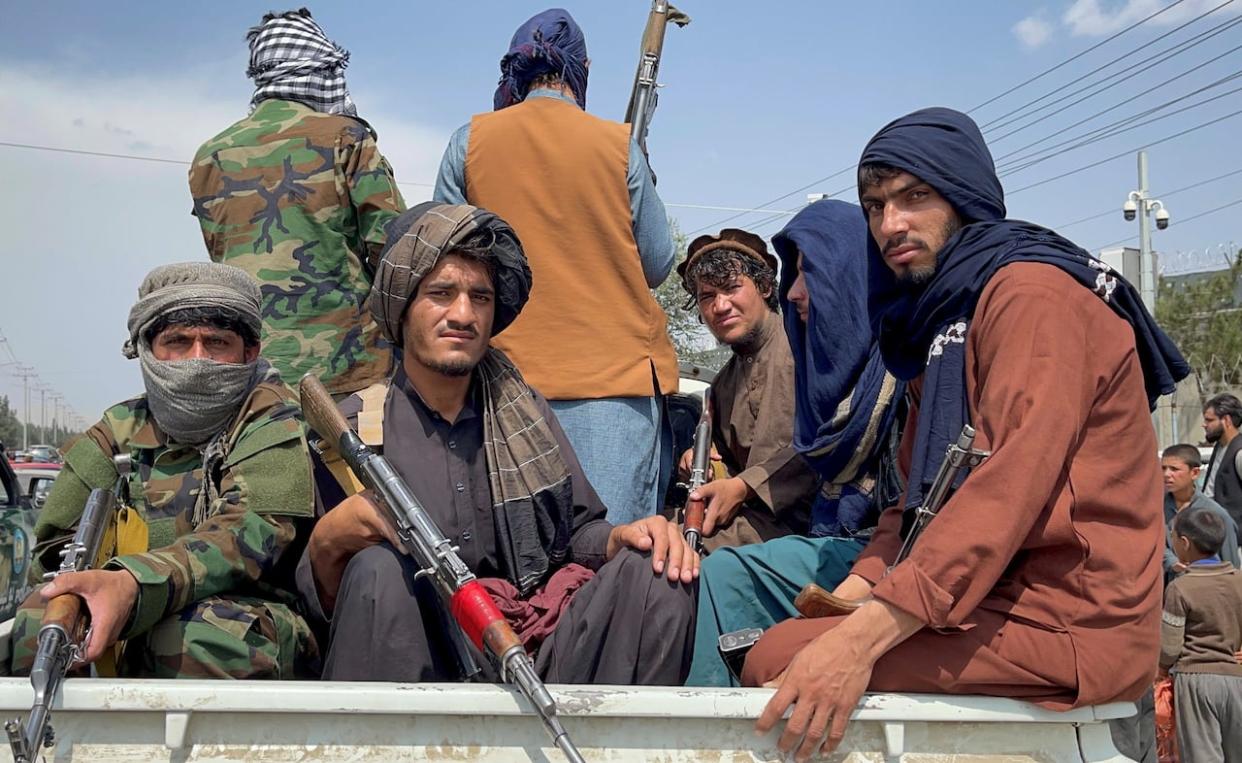
- Oops!Something went wrong.Please try again later.
Nearly a year after it closed its embassy in Afghanistan following Kabul's fall to the Taliban in 2021, the federal government was trying to plan flights out of the country to bring in an estimated 12,000 Afghans it believed were "current and future" clients of Immigration Canada, CBC News has learned.
That information is contained in a memo written for Prime Minister Justin Trudeau by the Privy Council Office and sent to him the week ending June 24, 2022. CBC News obtained the document through an access to information request.
"Immigration, Refugees and Citizenship Canada, and Global Affairs Canada are working with the United States and United Arab Emirates to investigate options for facilitating air travel out of Afghanistan and then subsequent security screening prior to onward travel to Canada. Negotiations with both countries are ongoing," the memo says.
When asked by CBC News how far the government got on planning airlifts with the U.S. and the UAE, Immigration, Refugees and Citizenship Canada (IRCC) said that "movement out of Afghanistan continues to be very difficult and dangerous.
"That is why the Government of Canada continues to work with the UAE, the United States and other countries, as well as NGOs and Canadian partners, to support those who remain in Afghanistan and to find ways to maximize humanitarian assistance and immigration pathways to Canada," the department said.
In July 2021, when the Taliban had almost completed its takeover of Afghanistan, the Canadian government announced special immigration measures for former employees of the Canadian government and the Canadian Armed Forces, such as military interpreters, along with their loved ones.
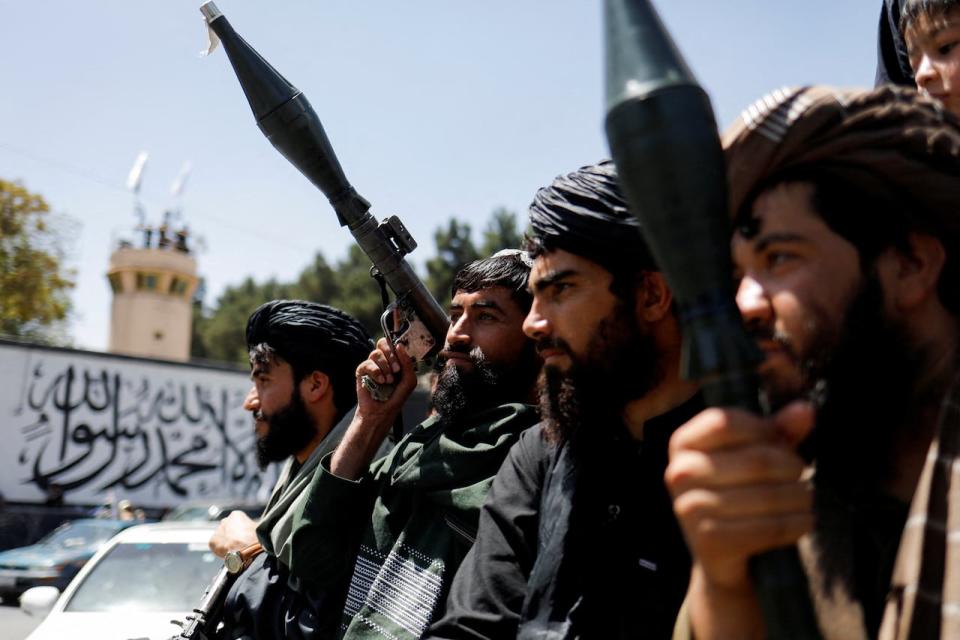
Taliban soldiers celebrate on the second anniversary of the fall of Kabul on a street near the U.S. embassy in Kabul, Afghanistan on August 15, 2023. (REUTERS)
IRCC says that, since then, it has brought 49,070 Afghan nationals to Canada. Most of them had fled Afghanistan for neighbouring countries such as Pakistan or Tajikistan, where they secured flights.
Citing operational security, the federal government has never disclosed publicly how many of those 12,000 Afghans are still in Afghanistan waiting to leave, or the total number of applicants to its immigration programs for Afghans.
"Because Afghans are part of a vulnerable population, we are unable to provide details on how many people remain in Afghanistan due to safety, privacy and security concerns," IRCC said in a media statement.
The government has said repeatedly that a major obstacle for these programs was its inability to land planes in Afghanistan.
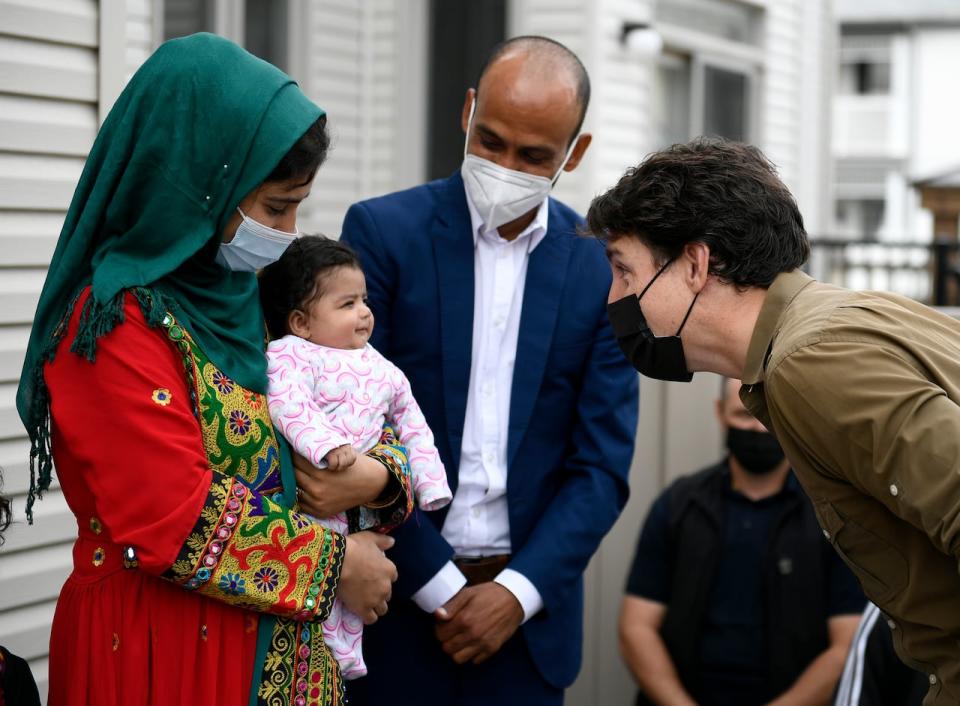
Prime Minister Justin Trudeau gets a smile from Hawa Rahimi, 2 months, as he meets her parents, Obaidullah, right and Arezoo, left, in Ottawa, on Saturday, Oct. 9, 2021. Obaidullah Rahimi worked at the Canadian Embassy in Afghanistan; his family is one of 22 resettled Afghan families in the Ottawa area. (Justin Tang/The Canadian Press)
On July 21, 2022, less than a month after his office received the memo, Trudeau told journalists at an event in Halifax that "the challenge right now is actually getting people out of Afghanistan."
"It's extremely difficult to even process people in-country," he added.
"We're dealing with a territory that's been seized by the Taliban, a listed terrorist entity under Canadian law," then-Immigration Minister Sean Fraser said at the same event. "These are people who don't have interest in helping people destined for Canada. They don't have interest in helping the Canadian government, for reasons that are perhaps obvious.
"Even if they wanted to, they don't have the expertise to manage the flow of people or even operate a professional airport."
Life still difficult for Afghans waiting to get out
"It would be a great idea if it would have happened," said Asad Ali Afghan, a former Afghan military interpreter with the Canadian Armed Forces, when asked about idea of direct flights.
He made it to Canada in August 2022 with his wife, one of his sisters and his mother, but is still trying to bring two other sisters and his brother here.
Afghan used to live in Kandahar prior to the Taliban takeover. He and his immediate family fled to Kabul, where he said he spent four months waiting after being told that Canada might be able to fly him out of there directly.
He then moved to Islamabad, Pakistan in November 2021, where he and his immediate family waited nine months for their paperwork to be finalized before moving to Canada.
Afghan said he's trying to convince the IRCC that his siblings depend on his financial support. He has sent them a translation of an official Afghan document, called an inheritance letter, stating they came under his care after their father's passing.
He said he has not heard back from officials yet.
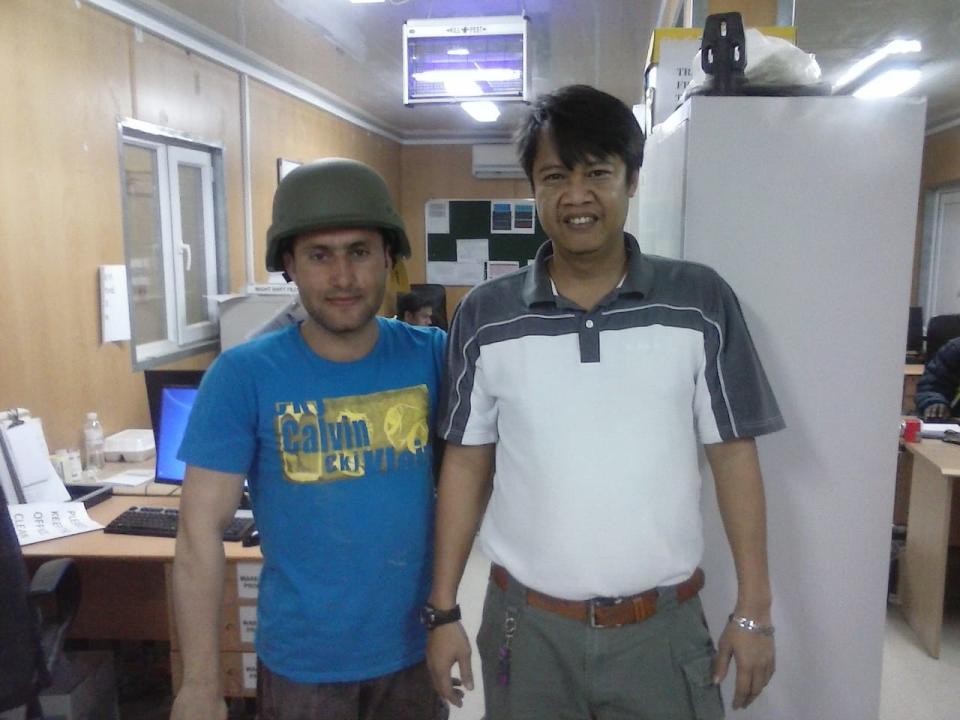
Asad Ali Afghan (left), pictured here in Afghanistan with an unnamed American official, spent years as a military interpreter for the Canadian Armed Forces in Afghanistan. He is trying to bring his siblings to Canada. (Submitted)
"I need a final answer about what's going on," Afghan said.
His siblings did make it to Pakistan but were sent back when their temporary visas expired.
Late last year, the Pakistani government began rounding up Afghans living in Pakistan and deporting them to Afghanistan. CBC News has reported that at least six families who were trying to move to Canada were caught in that sweep. Pakistan offered an extension for Afghans trying to get to third countries, such as Canada, until the end of February.
Afghans who worked for western forces like the Canadian Armed Forces, or who are relatives of those who did, fear being hunted down by the Taliban.
Afghan said he has gotten his siblings to Iran on temporary visas. They face being sent back in Afghanistan once those expire.
Ottawa says it is still working with partners
CBC News has reached out to the U.S. State Department and the UAE embassy for comment. The UAE did not respond.
The State Department said it "cannot discuss private diplomatic conversations" when asked about direct flights from Afghanistan.
Asked how it reached the figure of 12,000 migrants, the IRCC said in a media statement it worked with the departments of Global Affairs and National Defence to "estimate how many people with a significant and/or enduring relationship to Canada there might be."
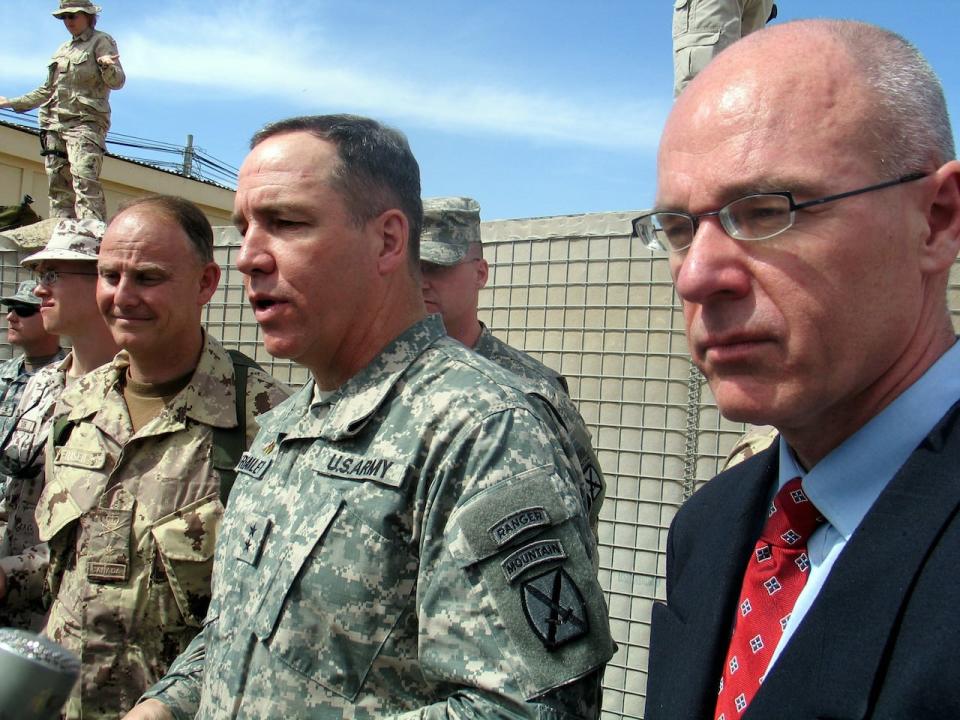
From left, Brig.-Gen. David Fraser, U.S. Maj.-Gen. Benjamin Freakley and David Sproule, then the Canadian ambassador to Afghanistan, speak with reporters after a change of command ceremony on Feb. 28, 2006. (The Canadian Press)
The IRCC also said it is still working with partners in the region and NGOs to help "Afghans inside and outside of Afghanistan."
The Canadian government has no diplomatic relationship with the Taliban regime, but in the summer of 2021 it did name David Sproule as a special representative to Afghanistan based out of Doha, Qatar.
CBC News reported a year later that Sproule had engaged with the Taliban at least on thirteen occasions.
It's not clear whether any of those meetings were specifically about establishing direct flights out of Afghanistan.
CBC News asked for an interview with Sproule for this story, but Global Affairs declined to make him available.

